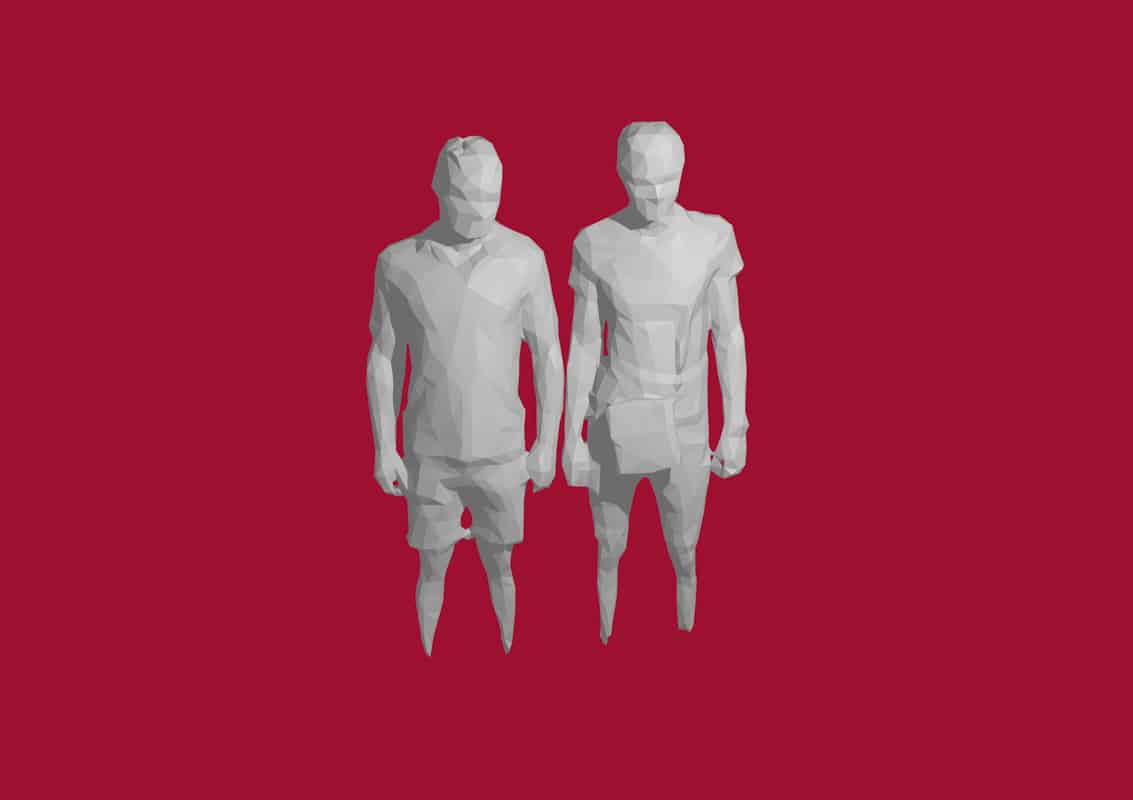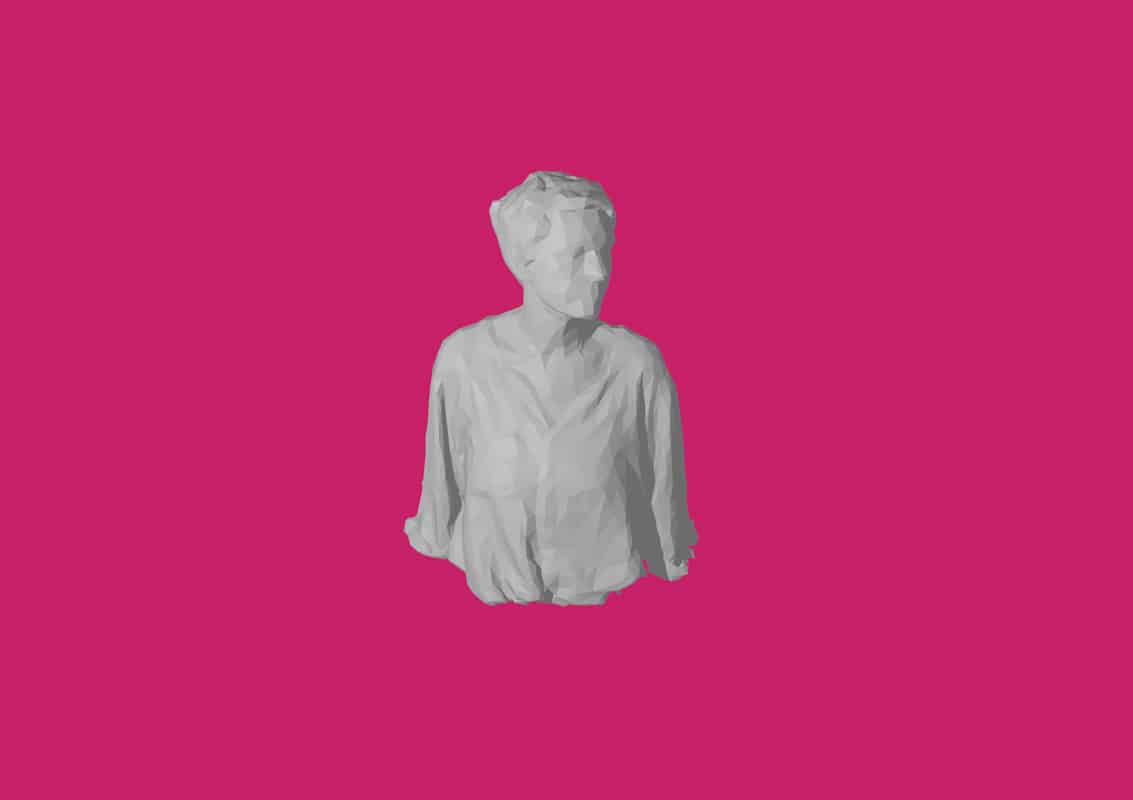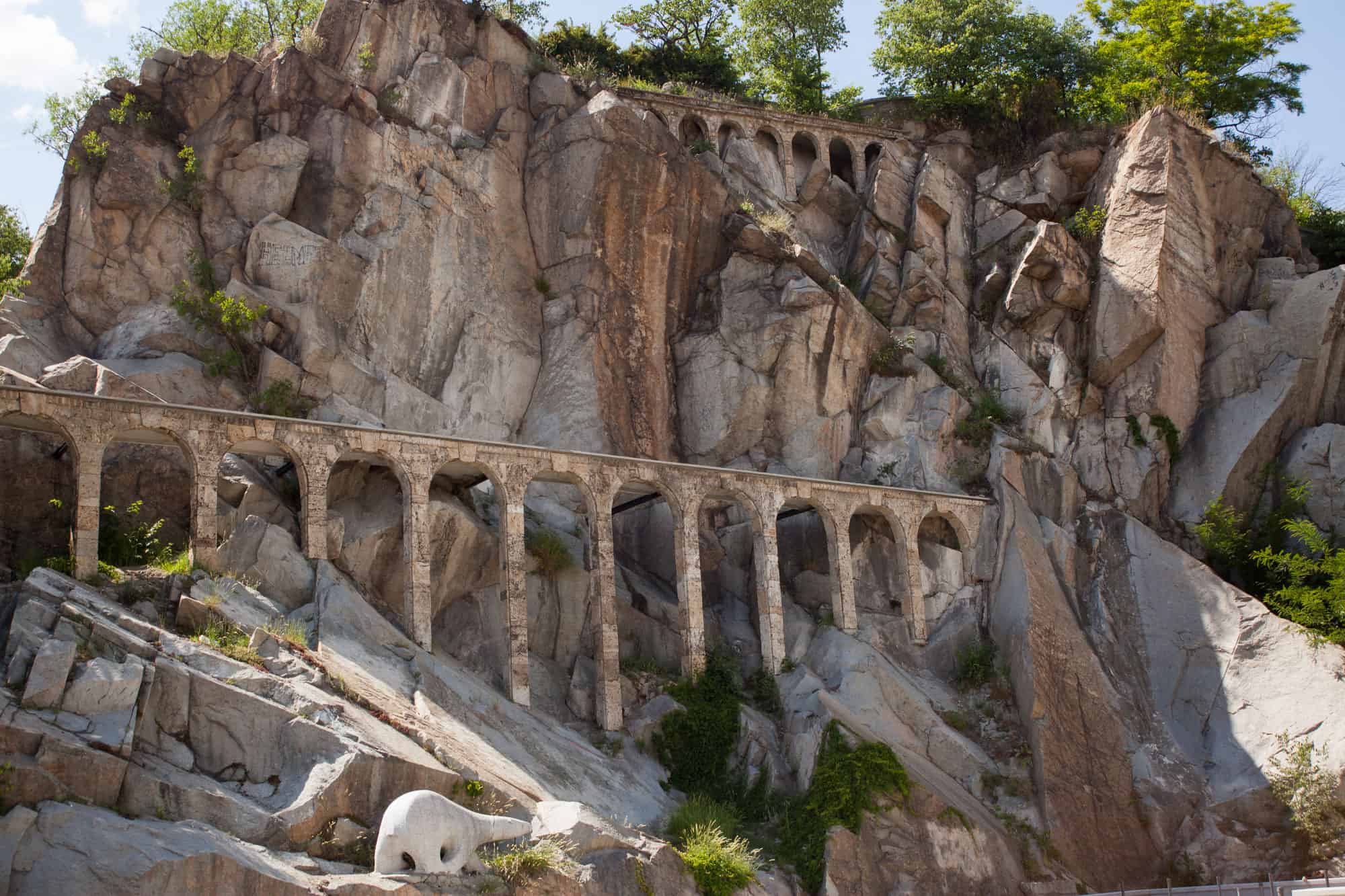Marta Włusek, a Berlin-based artist, has been invited to the week-long AIR residency in Plovdiv – the European Capital of Culture 2019 – to take part in Process-Space Art Festival. During her stay, she engaged the city’s residents in the process of creating her new body of work by using a 3D scanner as a photographic medium. She asked twelve participants to reimagine and perform the Roman statues of Plovdiv. The installation includes a video animation with screens placed on plaster columns and explores regional history and its impact on the locals’ cultural identity.

Marta Wlusek
How did you find out about the residency programme? How did you apply?
I attended Process-Space in Bulgaria twice, for the first time in 2017. I found an open call on ArtRabbit. It was actually the second year, when the organisers of the residency decided to make the call for applications public and put their announcement on a British website. Since 1991, when the Process-Space was founded, it has hosted a huge number of international artists, but the information about open calls wasn’t widespread but rather forwarded “by mouth” in a tight-knit network of friends of friends. The residency takes place in various towns of Bulgaria. In 2019, it happened to be in Plovdiv – this year’s European Capital of Culture. I felt that I had an idea for a proposal that would address Plovdiv’s rich and complex history, so I sent it to the organisers. Luckily, I was selected again.
What does your regular art residency day look like?
Process Space Art Festival is a very specific type of residency, a very sociable one. Each year over 10 participating artists are invited, plus guests, so the emphasis is placed on getting to know each other, socialising and collaboration. Discovering the city’s sites and cultural heritage is also a crucial aspect of the residency, and a part of many participants’ daily routine. After all, it is absolutely up to the artists how they will use their time during the residency, where they will work and what they will make out of it.
In your experience, what distinguishes working as part of a residency from working in your atelier?
Based on my experience, I can say that a change of place has an unforeseen and dramatic influence on my creative process. Working as part of a residency, which involves going abroad and meeting new people, is comparable to going on a journey that enriches your knowledge and shapes your personality. It is just impossible to isolate yourself, or to stay indifferent to what you witness. And it reflects in the work you make.

Does the change of context help you in the creation process?
Changing the context is a stimulant that triggers a way of seeing, which allows us to view things from another point of view. The aforementioned ‘unforeseen and dramatic’ influences the change of context may bring, are the sum of all those unpredictable moments that make the whole creative process even more interesting. Consequently, it may lead up to new, unexpected results.
Do you put emphasis on your work or rather on meeting people and exploring the city?
It is a mixture of both, an ideal work-play balance. Although, meeting new people and exploring the city can also be a part of the working process.

Marta Wlusek, installation
What challenges and opportunities did the residency involve?
The biggest challenge was the short time in which artists were expected to complete their work. The Process-Space Art Festival residency lasts 2 weeks and concludes with an exhibition of artworks made in that time span. It is, of course, a wonderful opportunity to present the work to the local audience. Another great opportunity is having a chance to meet Bulgarian and international artists from around the globe, and the knowledge exchange that happens between the artists through workshops and presentations. Furthermore, a very valuable experience arises within the opportunity of visiting hidden city spots and taking excursions to remote historical landmarks, which the residency organisers provide.

Name three objects which are the most important to you during the residency.
I’m not sure if I can prioritise objects. They are equally important as long as they fulfil their utilitarian function. However, I always pack my camera, but rarely use it as it’s too heavy and bulky to carry around. Then, my mobile phone comes in handy as I can effortlessly record any given moment with it. For the project carried out this year in Plovdiv, I used a lens-based 3D scanner and a laptop.
What is the role of an institution in your residency? What does it provide you with?
Process-Space Art Festival is a privately funded international festival for contemporary arts, held annually since 1992 through sponsorship and partnership with Bulgarian institutions. Invited artists are provided with accommodation free of charge, top quality dinners and art materials. More information about the festival can be found here.
What would you recommend to artists going abroad for an art residency?
Go out and explore your surroundings, this is where the inspiration usually comes from.

ART RESIDENCY: In this series of interviews we ask artists and creative professionals what art residencies mean to them and what benefits they bring to both sides. There is a wide range of art residencies available and it is crucial to make artists aware of such possibilities, recommend the most interesting ones, and allow art practitioners to share their experiences. Alongside the interviews, we also publish articles with selected open calls from around the world, and run a Facebook Group “Open calls/Residencies/Opportunities for artists” where the arts community can share more opportunities and experiences.









